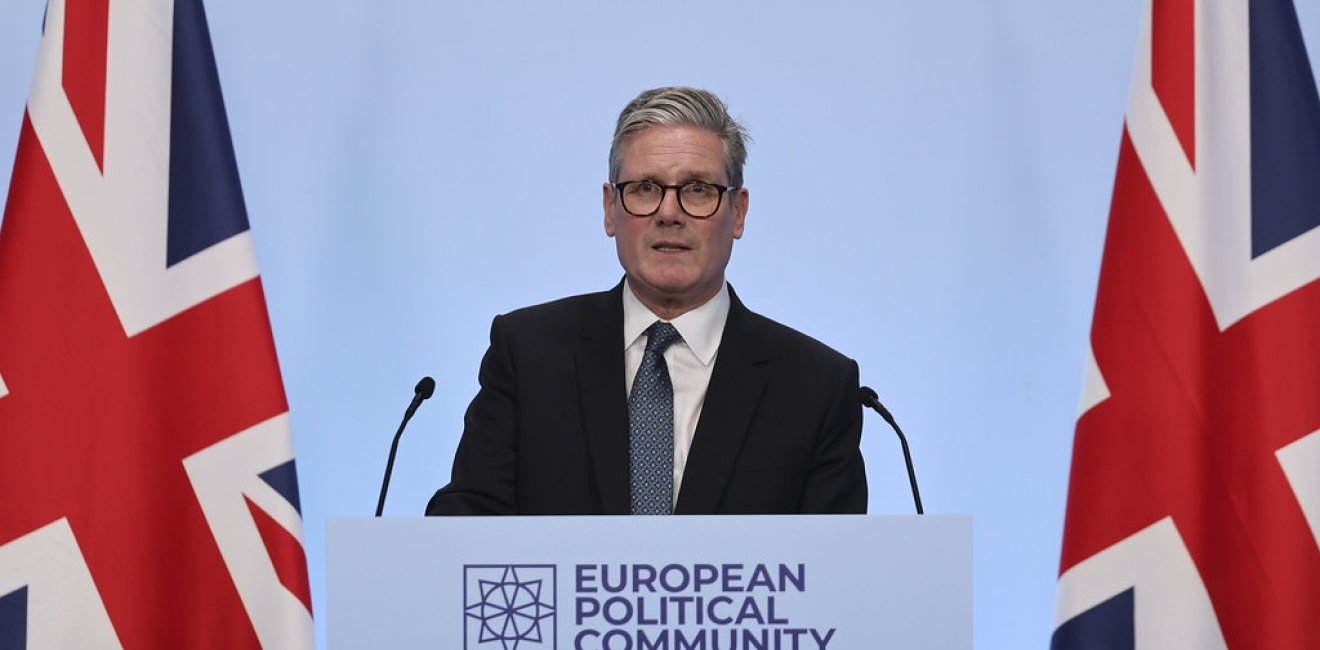The fourth European Political Community (EPC) summit met on July 18 at a precipitous moment for EU-UK relations. Fourteen years of Conservative-led governments came to an end after the July 4 general election, with the new Labour government ushering in a new era for redefining relations with both Brussels and specific EU member states. This EPC summit offered a unique lens into the current state of EU-UK relations, which – post-Brexit – now has a chance to build back better relations under a new Labour-led UK government.
The EPC was initially proposed by French President Emmanuel Macron in the wake of Russia’s invasion of Ukraine in 2022. It has been lauded as a new forum for discussing security and shared interests with a wide range of European leaders, both within and outside of the EU, while simultaneously being lambasted as a talkshop that fails to deliver meaningful progress. The previous summit in Granada, Spain was widely dismissed as a disappointment, in part due to heightened tensions between participating states–Armenia and Azerbaijan as well as Kosovo and Serbia–dashing any hopes for productive dialogue. Ahead of the last EPC summit it was also being proposed as an outer ring of EU gradual integration–not necessarily charting a path to membership but as a means of the EU exerting influence in its neighborhood. Former UK Prime Minister Rishi Sunak made headlines in Granada after insisting that the entire summit’s agenda be scrapped to focus solely on migration. This move was dismissed as theater for domestic politics. Following the lackluster takeaways of the previous summit, there was increased pressure on the UK-led summit.
The road to this summit has been particularly eventful. Initially planned for the first half of 2024, the summit was delayed due to domestic UK politics as general elections loomed large. On May 19, Prime Minister Sunak announced the summit would take place on July 18. A few days later, on May 22, Sunak called for the general election to be held on July 4–a mere two weeks before the EPC summit. Sunak’s government came to an end on July 4, replaced by a new Labour government led by Keir Starmer. Prime Minister Starmer found himself thrust into two high stakes international summits back-to-back: both the NATO Summit in Washington and hosting the EPC summit back home a week later.
Around 50 world leaders were expected to participate in this summit. In the end just over 40 heads of state and officials from the EU, the OSCE, and NATO attended. The venue, historic Blenheim Palace in Woodstock, is the birthplace of Winston Churchill. This year celebrates the 150th anniversary of the birth of the legendary leader, who famously suggested Europe should move towards becoming what he called “a United States of Europe.” His speech, delivered in 1946 as the continent rebuilt from a devastating war, seeded the ground for the European Union and deeper European integration. Churchill’s support for deepening cooperation within the “European family” – as he referred to it – continues on in spirit in the EPC format.
EU-UK relations are at a pivotal juncture, with high expectations of the new Labour government. Following the UK's referendum to leave the EU in 2016, an acrimonious Brexit ensued, instilling resentment and apprehension in Brussels, London, and several EU member capitals. These tense Brexit negotiations have been a dark cloud hanging over the EU-UK relationship. When Russia invaded Ukraine in February 2022, support for Ukraine rallied Europe's leaders, strengthening UK-France relations in particular. A return to normal communication as leaders coordinated aid packages seemed to prevail. Now, as elections rock both sides of the Atlantic and aid for Ukraine has slowed, the UK and EU must put aside past grievances to focus on the future, shared challenges facing Euro-Atlantic security, and their continued support of Ukraine. In an op-ed published in Le Monde, Starmer outlined the urgency of greater France-UK relations to address the numerous challenges facing Europe and European security.
Much attention has been paid to Prime Minister Starmer’s views towards the future of EU-UK relations. On the campaign trail, he made it clear he will not seek to have the UK rejoin the EU nor the single market. Instead, he has put forward his government would seek to remove trade barriers and deepen EU-UK security cooperation. Towards that goal, Starmer rallied leaders at the summit to crack down on Russia’s “shadow fleet” of oil tankers skirting international sanctions. David Lammy, the new Foreign Minister, claimed a Labour government would seek “a new geopolitical partnership with the EU” and is pursuing talks over an EU-UK security pact. John Healey, Labour’s new Defense Secretary, has been on the road since assuming the role, including a visit to Ukraine where he announced a major new military support package. The new Labour government has distinguished itself from its predecessor while recognizing the need for cooperation with the EU.
At the fourth EPC summit, Prime Minister Starmer successfully reset relations between the UK and the EU. Leaders from the EU and EU member states left Oxfordshire with a renewed sense of faith in cooperation with the UK. Josep Borrell, the EU’s High Representative of the Union for Foreign Affairs and Security Policy, said: “We welcome the new tone of the British government and we look forward to engaging with it. We are ready to reinforce our foreign and security policy cooperation.” The UK’s EPC summit tackled a wide range of topics from AI, to support for Ukraine, to joint efforts to tackle illegal immigration and organized crime, energy security, and the smuggling of people. The next summit, to be held in Hungary on November 7, 2024, promises to build on the UK summit and pledges for greater cohesion between summits.
European Commission President Ursula von der Leyen and Prime Minister Starmer are planning to meet within a few weeks to “accelerate a “reset” of relations three years after the UK left the bloc”, according to the Financial Times. An uptick in UK-EU relations is a positive sign in a pivotal year of elections dominated by unpredictability. The UK-led EPC summit succeeded in fostering greater European unity and cohesion to stem the growing challenges of Russian revanchism and rally support for Ukraine.
Author


Global Europe Program
The Global Europe Program is focused on Europe’s capabilities, and how it engages on critical global issues. We investigate European approaches to critical global issues. We examine Europe’s relations with Russia and Eurasia, China and the Indo-Pacific, the Middle East and Africa. Our initiatives include “Ukraine in Europe”—an examination of what it will take to make Ukraine’s European future a reality. But we also examine the role of NATO, the European Union and the OSCE, Europe’s energy security, transatlantic trade disputes, and challenges to democracy. The Global Europe Program’s staff, scholars-in-residence, and Global Fellows participate in seminars, policy study groups, and international conferences to provide analytical recommendations to policy makers and the media. Read more

Explore More
Browse Insights & Analysis
360° View of How Southeast Asia Can Attract More FDI in Chips and AI

A Case for a North American Common Tariff


